On Wednesday, May 10th, at the Croatian State Archives in Zagreb the promotion of the expert study titled “Action Plan for the uptake of the Offshore Renewable Energy Sources in Croatia” was organized by the Renewable Energy Sources of Croatia, with funding from the European Bank for Reconstruction and Development (EBRD). The study was conducted by experts from the Faculty of Mechanical Engineering and Naval Architecture at the University of Zagreb, OIKON – Institute for Applied Ecology, and the Island Movement. This is the first comprehensive study in Croatia that addresses all important segments of offshore renewable energy sources.
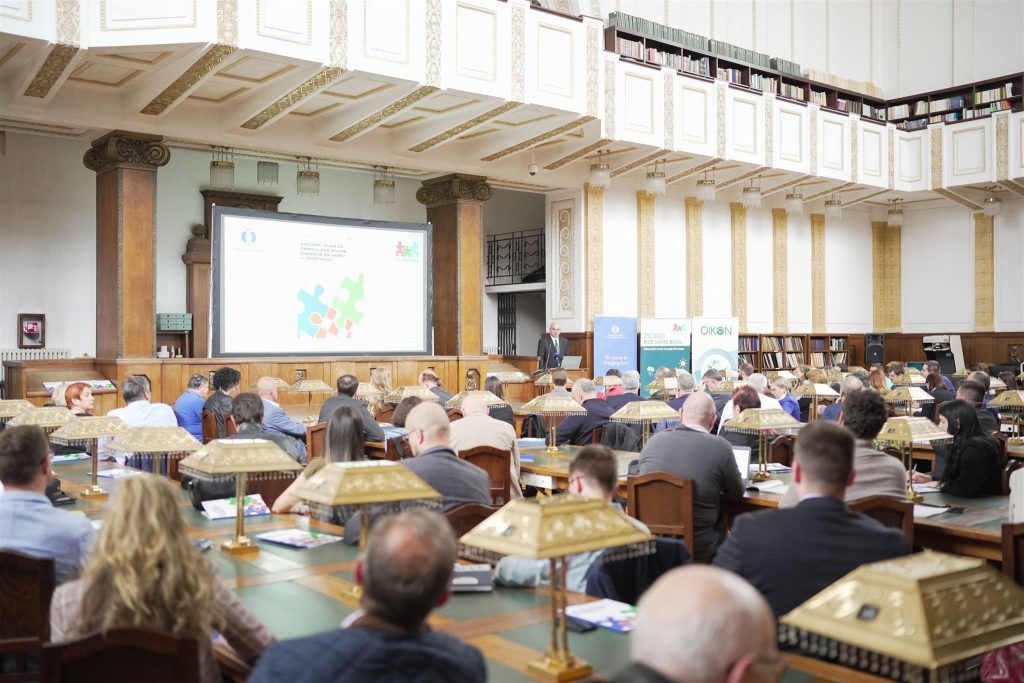
During the presentation, Ivo Milatić, the State Secretary of the Ministry of Economy and Sustainable Development, addressed the audience:
“We are all aware that Croatia has committed in its strategic plans to ensure that our produced electrical energy should come from renewable sources, and we also aim to become exporters of renewable energy.”
“The Ministry of Economy and Sustainable Development has issued energy permits for a total of 2.5 GW of renewable projects in the past two years, 80% of which are for solar power plants, thus approaching the set strategic goals. However, today we are here because of offshore wind farms and solar power plants at sea. Croatia has long decided not to build wind farms on islands, but we can utilize them excellently at sea and get one step closer to our goals. This study is the first step in a series of studies, discussions, and initiatives that will ultimately result in the development of a national spatial plan for the marine area as the main prerequisite for any future implementation of offshore renewable energy projects,” concluded Ivo Milatić.
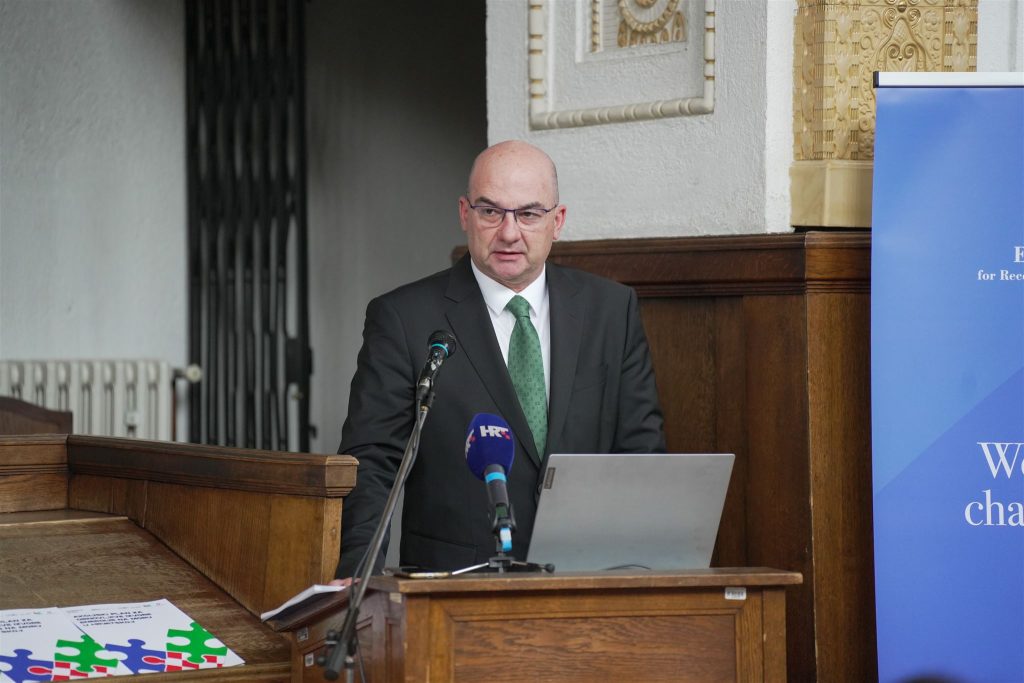
In recent years, there has been a growing need for offshore renewable energy sources in Europe to achieve energy transition goals, especially after facing high gas and electricity prices due to the war in Ukraine. However, offshore renewable energy projects have significantly longer construction times compared to onshore projects due to their size and complexity. Therefore, it is important to start early and explore the best possibilities. It is known that Croatia has a great potential for onshore renewable energy sources, and this study shows that the potential is also significant at sea.
“In areas with reduced environmental impact, the potential for more than 25 GW of offshore wind farms has been identified, which could turn Croatia into an important European player in the renewable energy sector in the next decade. Currently, there is a total installed capacity of 30 GW of offshore wind farms in Europe. In order to increase European energy security in the medium and long term, Croatia should utilize its offshore potential as soon as possible,” said Victoria Zinchuk, the EBRD Director for Central Europe, in her opening address.
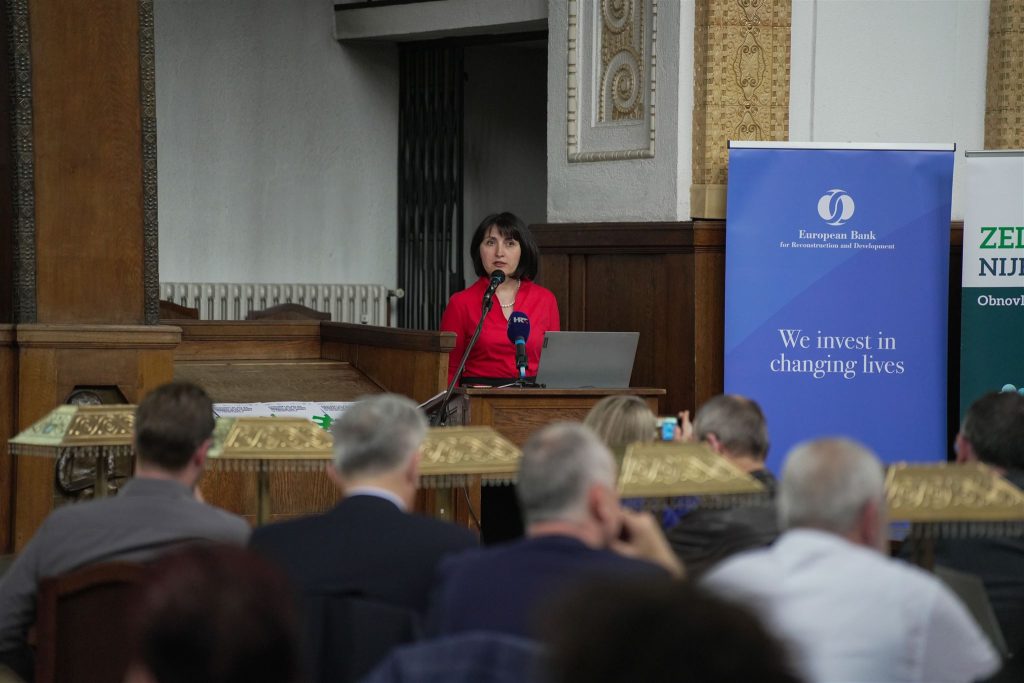
“I would like to thank everyone who worked on this research to highlight this potential. To realize it, it is necessary to involve all stakeholders, including the local community, and carry out regulatory reforms and facilitate investments. EBRD, the largest driver and financier of renewable energy in the region, is ready to support Croatia both technically and financially,” emphasized Victoria Zinchuk.
The presented study analyzes the existing framework and conditions for the development of offshore renewable energy sources and proposes an action plan to assist in their implementation. Valid infrastructure, both offshore and accompanying onshore infrastructure, plays a very significant role in it.
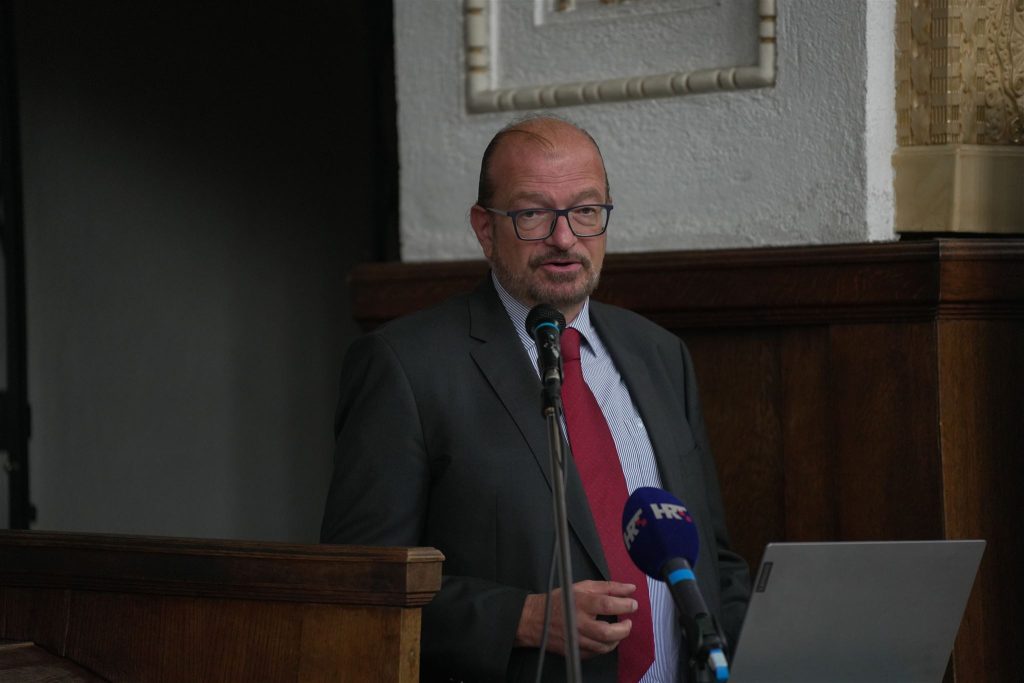
“Croatia has already faced the burden on the power grid due to onshore renewable energy sources, so investments in the onshore grid are necessary both before and during the construction of offshore renewable energy sources. Currently, the development of the offshore grid is mainly being developed as a radial connection for offshore renewable energy sources. In addition to these single-purpose solutions, there will be an increasing number of multi-purpose solutions in the future that connect offshore renewable energy sources with multiple countries,” said Prof. Dr. Neven Duić from the Faculty of Mechanical Engineering and Naval Architecture at the University of Zagreb.
“The initial phase of planning and developing offshore infrastructure depends on the developers’ plans, while later project planning phases should be taken over by the operator. In terms of onshore connection points, the main electricity consumption centers in Croatia are in the continental part of the country, while most of the new onshore renewable energy capacities are under development in southern Croatia. Currently available capacity is not suitable for large offshore renewable energy projects, so it is necessary to increase the available capacities for connecting offshore renewable energy to the onshore grid,” concluded Prof. Dr. Neven Duić.
The Action Plan for offshore renewable energy sources in Croatia has identified areas in the Adriatic Sea suitable for the development of offshore renewable energy technologies – primarily wind farms but also floating solar power plants, taking into account numerous aspects to ensure their development is environmentally and nature-friendly.
Zoran Poljanec, project manager at OIKON, highlighted: “In order to maximize the utilization of offshore renewable energy zones, it is proposed that offshore wind farm projects being developed together with floating solar power plants and connected to other activities, such as hydrogen production and mariculture. Taking into account low and medium impact zones, this study has identified 29,000 km2 of area for offshore renewable energy sources, of which the central and southern parts of the Adriatic Sea have over 26,000 km2 of potentially available area.”
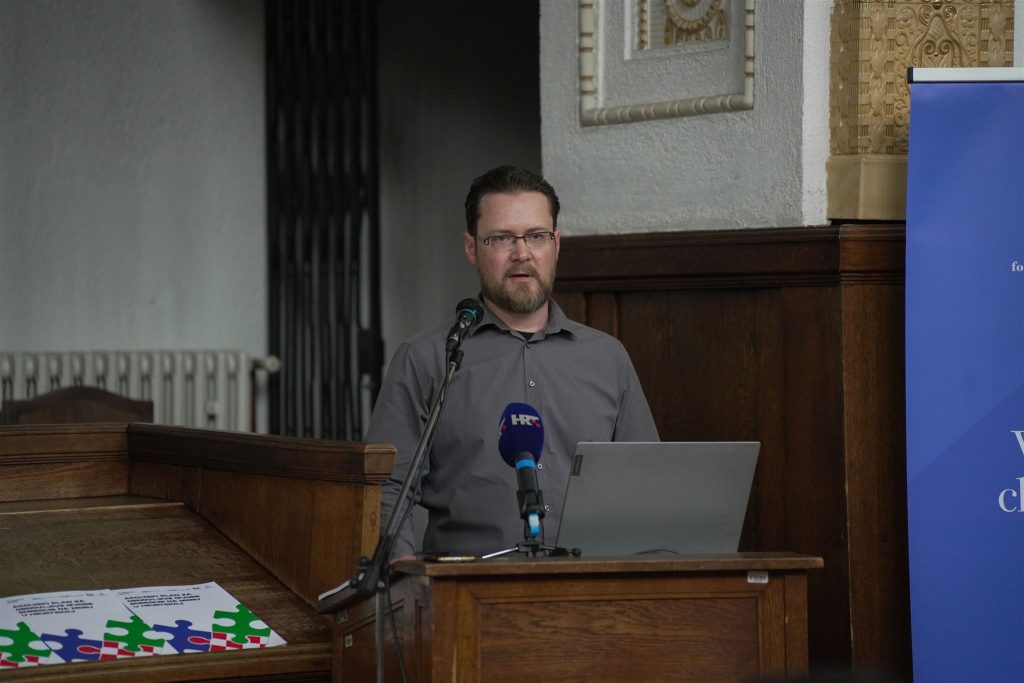
Due to greater sea depths in this area, future development would focus on floating wind farms and floating solar power plants. These figures should be taken as guiding values, as each individual renewable energy intervention will need to be thoroughly analyzed at the project level, with comprehensive research and monitoring of the marine environment. This plan serves as a valuable foundation for future planning and the identification of areas suitable for the utilization of renewable energy technologies in the Adriatic Sea, paving the way for sustainable growth and a greener future.
The importance of sustainable growth and the need to consider it in the planning and development of projects at sea was also emphasized by Maja Jurišić, the President of the Island Movement, highlighting the need for involvement of local communities:
“The development of renewable energy projects in Croatia is unquestionable; the question is how we will all participate in the development process together. Croatia has the potential for renewable energy production on land and at sea, but we need to use them in a more sustainable way. In addition to the financial benefit, which unfortunately is often the primary and only significant consideration, it is necessary to consider the broader impact of business and everyday activities. Environmental studies and analyses should be included in calculations and plans, along with the involvement of citizens, local communities, and businesses affected by the development of such projects.”
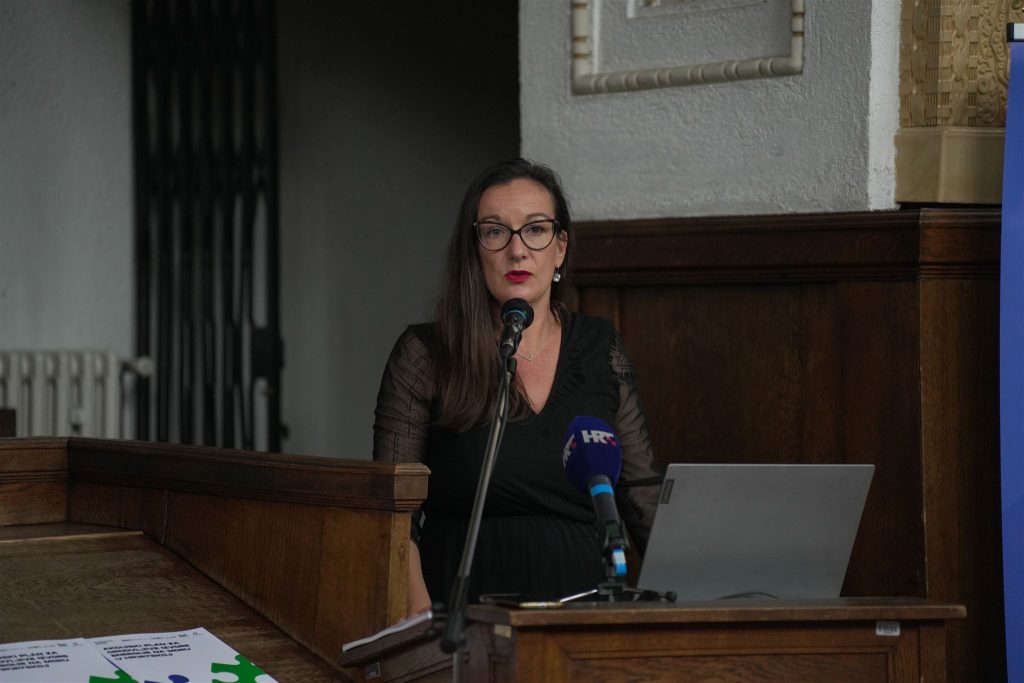
“The inclusion of all stakeholders in a transparent and inclusive manner is equally crucial for achieving national priorities as well as considering environmental and social impacts and overall contributions to sustainable economic development. Through the Action Plan for the development of offshore renewable energy projects, existing development models and community involvement in Europe have been examined, and strategies and tools for education, business model development, and collaboration have been proposed,” stated Maja Jurišić.
Recognizing the importance of involving all stakeholders is the foundation for successful development of renewable energy projects, whether on land or at sea. OIEH has demonstrated its commitment to approaching every new megawatt of renewable energy development with seriousness and respect for all segments through its continuous collaboration with the EBRD.
Maja Pokrovac, the Managing Director of RESC, emphasized at the presentation of the Action Plan for offshore renewable energy sources in Croatia:
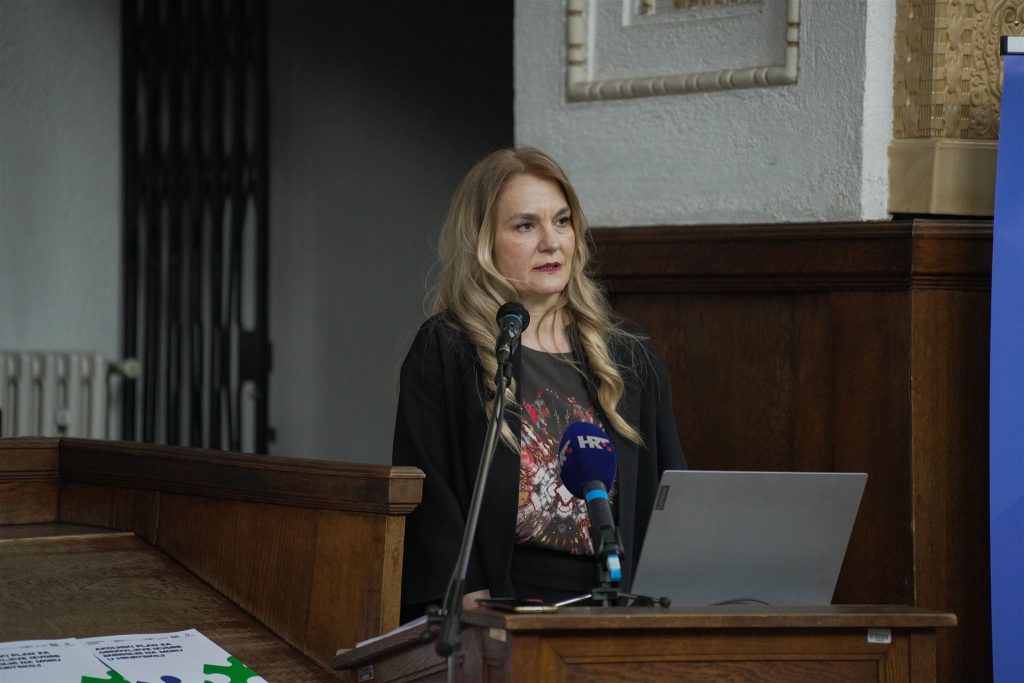
“Increasing offshore renewable energy can be utilized for the growth of the national economy. Numerous Croatian companies have already established collaborations with the scientific and academic community in the production of equipment, installations, and other components for onshore renewable energy. For example, in the future, the shipbuilding sector could be linked to the development of offshore renewable energy, as Croatian shipyards have the production capacity to support the construction and installation of offshore wind turbines.“
“In order to achieve full momentum and efficiency of offshore renewable energy sources with lower costs and reduced environmental impact, further research and development of innovations are necessary. We are proud that experts from the Faculty of Mechanical Engineering and Naval Architecture at the University of Zagreb, OIKON – Institute for Applied Ecology, and the Island Movement participated in the development of this study and contributed their knowledge to this research. OIEH always emphasizes that Croatia can achieve its energy self-sufficiency goals, and megawatts of offshore wind and solar power can certainly contribute to that. This study will demonstrate how to do it in the best possible way,” concluded Maja Pokrovac.
As a result of the ongoing collaboration between EBRD and OIEH, three studies have been conducted. The fourth study on the potential use of solar energy in the agriculture and freshwater aquaculture sectors is nearing completion, along with a project focused on education for jobs in the solar power sector.










